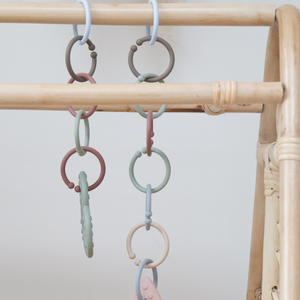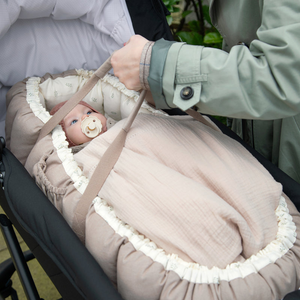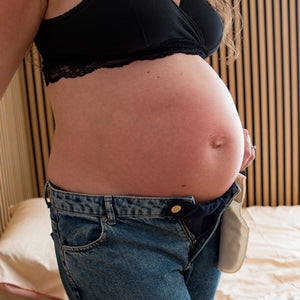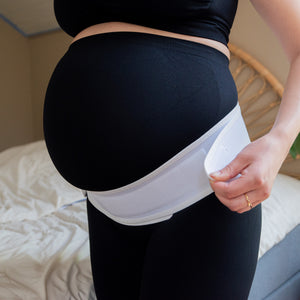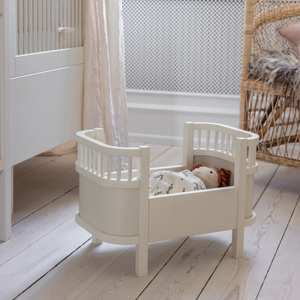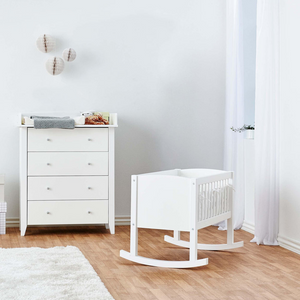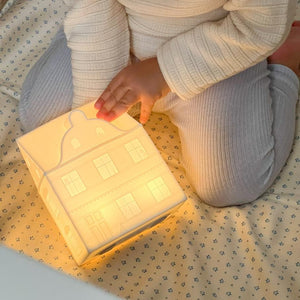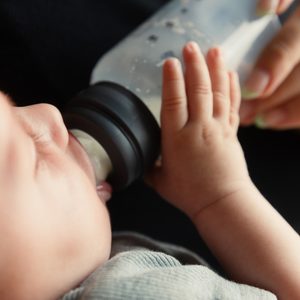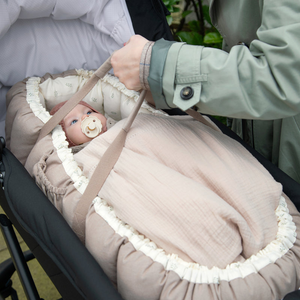
Note that this article is from 2020, and rules and conditions may have changed.
It can be difficult to fully understand what the maternity law entails. What number of weeks of maternity leave are you and your partner entitled to, how does it affect your salary, and what are the rules regarding public employees? These are just examples of questions we seek to answer here.
Maternity Leave
As of the latest update, mothers must take four weeks off before their maternity leave (due date) and 14 weeks after childbirth. Immediately following childbirth, fathers/partners are entitled to two weeks off (rules may differ for public employees). The leave that parents can take after childbirth is called “maternity leave.” Be aware that your employer must be informed of your expected due date and whether you plan to take maternity leave before childbirth at least three months before the due date.
Parental Leave
After the end of maternity leave, both parents are entitled to a so-called “parental leave” of 32 weeks. As a mother, you can start your parental leave after your maternity leave has expired.
Both parents can extend their parental leave by eight or possibly 14 weeks. It is not possible to extend it by any other number of weeks. For example, you cannot have a total of 47 weeks of combined parental leave. If one of you is not attached to the labor market, that parent's parental leave can only be extended by eight weeks. No approval from the employer is required if the extension of parental leave is communicated no later than eight weeks after childbirth.
What is Paternity Leave?
Fathers/partners are entitled to take two weeks of so-called paternity leave up to 14 weeks after childbirth. How, when, and exactly how this is taken must be agreed upon with your employer. However, if you are unemployed, these 14 days of paternity leave must be taken immediately after childbirth. It is not possible for the mother to take paternity leave.
Can Parental Leave be Postponed?
A minimum of 8 and a maximum of 13 weeks of parental leave can be postponed until after the child's first year. However, it must be taken before the child turns nine years old. Additionally, this postponed parental leave must be taken in one continuous period.
It is also possible to make what is called an “agreement-based postponement.” This means that you agree with your employer to postpone parental leave to some later date. In this way, up to 32 weeks of parental leave can be postponed.
Will I Get Paid During Maternity Leave?
It is possible. If you are the mother and are subject to the Function Act, you are entitled to half of your usual salary during your maternity leave from four weeks before the due date to 14 weeks after childbirth. Only here do you have a legal claim to salary. However, depending on your employment contract, you may receive full salary or salary for a longer period. Note that there are different salary requirements for public employees during maternity leave.
What About Maternity Benefits?
If you are connected to the labor market before your maternity leave, you are entitled to maternity benefits. This public benefit helps your financial security in case you do not receive salary during the maternity period. If your maternity benefits exceed what you receive in salary during maternity leave, you are entitled to the difference between these.
Note that there are special conditions regarding maternity benefits for students and self-employed individuals. Here you should contact Udbetaling Danmark for more information.
What amount will I receive in maternity benefits?
It depends on several different factors, including whether you are unemployed, an employee, a student, or self-employed. Additionally, your weekly working hours and hourly wage. The highest amount you can receive and still get maternity benefits is 4,405 kr. per week before tax. This applies regardless of the aforementioned categories.
How long can I receive maternity benefits?
Mothers are entitled to maternity benefits for the period from four weeks before and 14 weeks after childbirth, while fathers/co-mothers are entitled to maternity benefits for the two weeks directly after the birth.
In total, parents are entitled to 32 weeks of maternity benefits. For example, if the mother takes maternity benefits for 20 weeks, the father/co-mother can receive 12 weeks of parental leave in addition to their paternity leave.
This applies even if one of you chooses to extend their parental leave. However, it is possible to reduce the maternity benefits throughout the entire period so that it covers.
To receive maternity benefits, it is essential that your employer informs Udbetaling Danmark about your absence, as you will not be able to receive it otherwise. This applies even if you do not receive a salary during the leave period.
It is possible for the employer to get the salary refunded
On the condition that the employer pays salary for either the entire or part of the leave period, the employer is entitled to a refund of the part of the salary corresponding to what the employee would have received in maternity benefits had the employee not received salary during the maternity leave.
The employer can apply for a refund every month, quarter, or possibly all at once at the end of the maternity leave. However, a condition for the money to be refunded is that the salary has been received by the employee before the salary is refunded.
If you receive salary during the parental leave and at the same time choose an extension of the period, you must ensure that your employer approves it, as otherwise your employer would receive a smaller portion of your salary refunded. This is due to how maternity benefits are distributed over a longer period, thus making it smaller.
It is even possible for the employer to get a higher amount refunded by applying to the Maternity Fund.
What maternity rules are public employees subject to?
If you or your partner is a public employee, different rules apply in certain respects. They are as follows:
- As a mother, you are entitled to full salary for eight weeks of your maternity leave (if you are employed by the state, you receive six weeks) before your childbirth and for 14 weeks after it.
- As a father/co-mother, you are entitled to full salary for two weeks after the relevant birth (to be taken within the first 14 weeks after this).
- As a mother, you are entitled to parental leave for 12 weeks with full salary. As a father, you are entitled to parental leave for 13 weeks with full salary. If both parents are under the same maternity agreement, you can collectively receive 19 weeks of full salary. The last six weeks of distribution can be determined by you.
- As a mother, the parental leave must be directly after the maternity leave. As a father, the parental leave period is optional as long as it takes place before the child is 46 weeks old.
Employees enjoy protection against dismissal during leave
A special protection against dismissal exists for both pregnant employees and those on maternity or parental leave. In other words, employees cannot be dismissed partially or completely based on their leave.












